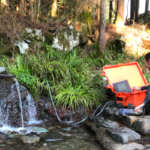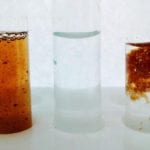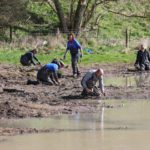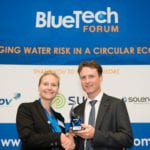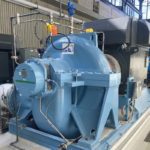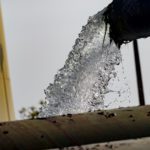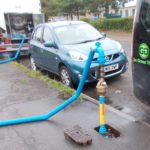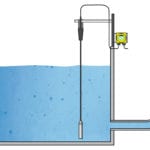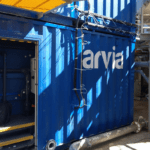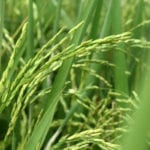Tracing the flow of water with DNA
Environmental DNA analysis of microbial communities can help us understand how a particular region’s water cycle works. Basel hydrogeologist Oliver Schilling recently used this...
Latest UKWIR projects available for expression of interest
UKWIR (UK Water Industry Research) is now seeking expressions of interest (EOI) from expert partners or consortiums “able to deliver targeted research projects tackling...
World Water Council announces winner of Kyoto World Water Grand Prize
The World Water Council has announced the winner of the 5th Kyoto World Water Grand Prize: Charité Chrétienne pour Personnes en Détresse (CCPD -...
Graphene’s promise for purification
A group of Russian scientists has figured out that graphene is capable of purifying water, making it drinkable, without further chlorination. "Capturing" bacterial cells,...
New wetlands in Wiltshire to recharge nearly 600 million litres of groundwater per year
In a tie-in with World Water Day in late March, employees from Amazon Web Services (AWS), The Rivers Trust and Action for the River...
Comment: PFAS removal – we already have the technology
The issue of PFAS contamination of drinking water sources has been under the media spotlight in recent weeks, scrutiny that is likely to increase...
Water innovators recognised at BlueTech event in Vancouver
Technologies for wastewater treatment and plant optimisation were the winners of the Innovation Showcase at BlueTech Forum. The event attracted 200 delegates and took...
Plasma treatment gets a bit better
Growing pollution levels in waterways are heightening the urgency of developing new and more effective forms of water treatment
Research highlights need to promote water efficient products
Research carried out by the Bathroom Manufacturers Association (BMA) appears to highlight the need for retailers and installers to promote water efficient products to...
Optimisation opportunity
Pump manufacturer KSB writes about its involvement in a recent project to upgrade a 50-year-old potable water pumping station in Canada. The station supplies around 420k people and provides up to 340m L/day
Four ways digitalisation helps desalination plants
As water scarcity increases, desalination plants are on the rise. However, these facilities are not without their challenges. Desalination plants are costly to operate,...
Q&A: Drivers point to growth in Africa’s industrial water market
With multiple drivers for growth in the industrial market, the challenges for water in Africa are more around implementation than technology, says Walid Khoury...
Tracking emerging contaminants
The list of potentially hazardous contaminants in drinking water and the environment continues to grow. At Aqua Enviro's European Waste Water Management Conference (EWWM)...
Firm brings All-Membrane Brine Concentration (AMBC) technology to Africa
Modern Water has entered into an important new collaboration agreement with WEC Projects of Johannesburg to promote its innovative and proprietary All-Membrane Brine Concentration...
Optimising water data ahead of price review
Ofwat has published its PR24 final methodology and expectations around leakage and water consumption are predictably high. Implemented now, smart technology can help get...
Exclusive distribution granted for intelligent chemical dosing system
An automatically adjustable, portable chemical dosing system, developed for use in pipe commissioning, has secured sole distribution with pipeline equipment specialist AHS Pipeline...
First WRAS ‘certified’ submersible level sensor
Instrumentation firm VEGA Controls has announced an apparent first for the water sector - the first ever WRAS approval of a submersible pressure...
New water treatment technology for organic pollutants
Sponsored content: Arvia developed and refined a unique next-generation water treatment process, called Nyex Rosalox™, designed to target and destroy persistent organic pollutants.
Lockdowns and water quality: building usage study prompts recommendations
During the lockdowns, lower occupancy in buildings led to reduced water use, raising concerns about water quality due to stagnation. Government warnings highlighted increased...
Treated graywater better for arid environments than non-treated, say researchers
Reusing graywater in dry areas may require treatment for more efficient irrigation in arid, sandy soils, according to a new study published in Chemosphere...



